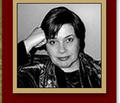Sex addiction recovery typically involves at least psychotherapy,twelve-step groups self-help groups and medication. Medication, while not always necessary, can serve as the “water wings” for negotiating the changes necessary for growth.
Certain psychiatrists believe that addiction is maintained by mood-dependent motives and that pharmacological treatment of the underlying mood disorder can diminish the urges and cravings associated with the addiction to sex. Medications that enhance mood/feelings regulation also enhance the the ability to control impulses.
That there are chemical changes in the brain when you enter “the erotic haze” cannot be disputed. Sexual arousal is a stimulated neuro-chemical state, induced by the release of adrenaline, serotonin, dopamine and endorphins that occurs when you engage in intense sexual fantasy, rituals and behaviors. You get high on your own neurochemistry long before you actually have sex. In fact, you may try to stay in the “erotic haze” as long as you can, putting off any actual sexual release. A euphoric state not dissimilar to the inner state of an opiate user.
During recovery, certain medications can help sexual addicts alleviate compulsivity, anxiety and depression. Some medications act on brain chemicals linked to obsessive thought and behaviors and reduce the chemical “rewards” of sexual behaviors. Which medication is best for you depends on your overall situation and other mental health conditions or addictions you may have.
You may have to try several medications, or a combination of medications, to find what works best for you with the fewest side effects. Medications used in addiction recovery treatment are often used primarily for other conditions. They include:
Antidepressants. Those most commonly used to treat compulsive sexual behavior are selective serotonin reuptake inhibitors (SSRIs). These may include Prozac, Paxil, Zoloft and others. SSRi’s often have a side effect of a reduction in libido and sexual functioning which is sometimes useful in recovering from addiction.Mood stabilizers. These medications are usually used to treat mania, but research suggests that they also help addicts to reduce uncontrollable sexual urges, in order to achieve sexual sobriety.
Naltrexone. This medication is generally used to treat alcoholism and drug addiction by blocking the part of your brain that experiences pleasure from addictive behaviors.
Anti-androgens .
These medications reduce the biological effects of sex hormones in men and help free them from addiction. Because they reduce sexual urges, anti-androgens are often used in men whose sexual behavior is dangerous to others, such as pedophilia.
Luteinizing hormone-releasing hormone (LHRH). This medication may turnaround the process of addiction and reduce obsessive sexual thoughts by reducing the production of testosterone.
Anti-anxiety medications. Examples include Klonopin, Ativan, Librium, Valium and Xanax. These medications are used to reduce serious anxiety and aggression in emergency situations, but are generally avoided, as they may result in abuse of the chemical.
Dorothy Hayden, LCSW, has been treating sex addiction for 15 years. With 30 articles and one e-book, "Total Sex Addiction Recovery -- A Guide to Therapy", she is considered a "thought leader" in the field. She has been interviewed by HBO, CNN and "20/20" about cybersex and sex addiction.
CALL NOW AT 212-673-5717 FOR A FREE 30-MINUTE PHONE SESSION.
http:ww/sextreatment.com
http://www.porn-no-more.com

Post new comment
Please Register or Login to post new comment.